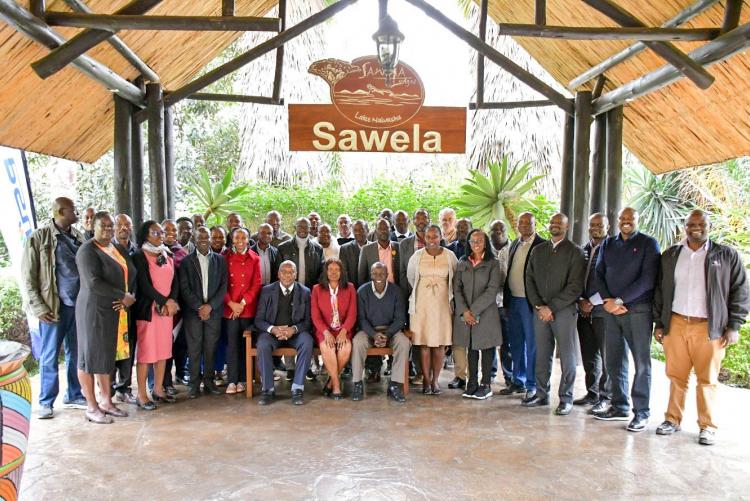The Engineering and Science Complex (ESC) Project marked a major milestone in its policy and systems development journey through two back-to-back workshops held in Naivasha from 17 to 18 July 2025. The sessions brought together interdisciplinary teams under the key ESC pillars to co-develop policy frameworks and digital transformation roadmaps aimed at strengthening the project's implementation and long-term sustainability.
The Industry–Academia pillar made significant progress by proposing a mandatory, credit-bearing Industrial Attachment Policy for all STEM programmes at the University. This policy is informed by a Labour Market Needs Assessment Survey and is complemented by a proposal to adopt an integrated Attachment Management System (AMS) to streamline and monitor student placements across industry partners.
Simultaneously, the Internationalization pillar revised the University’s Internationalization Policy and Strategy 2025 and finalized the Guidelines and Procedures for Credit Transfers and Exemptions. A key outcome of this pillar’s work is the planned digitization of the credit transfer process through the development of a new SMIS Mobility Module, which will facilitate seamless student and staff exchanges with global partner institutions.
The workshops were organized by the Directorate of Advancement and Institutional Development, led by Acting Director Prof. George Abong’, and were officially opened by Prof. Leonida Kerubo, Dean of the Faculty of Science and Technology, on behalf of the Vice Chancellor Prof. Margaret Hutchinson.
These developments reaffirm the University’s commitment to advancing STEM education through policy coherence, digital innovation, and robust industry and global partnerships.
- Log in to post comments

